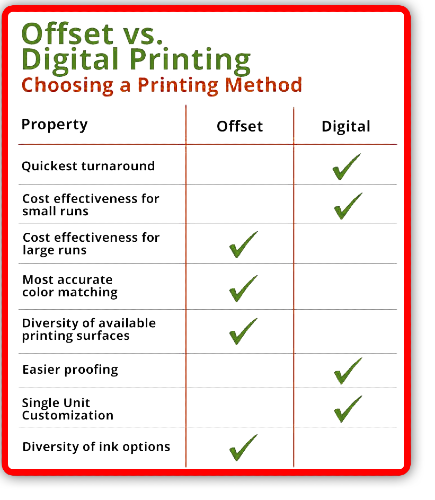What Does Digital Printing Do?
Unknown Facts About Digital Printing
Table of ContentsDigital Printing Fundamentals ExplainedWhat Does Digital Printing Do?7 Simple Techniques For Digital PrintingAll about Digital PrintingAn Unbiased View of Digital PrintingUnknown Facts About Digital Printing
Variable information printing, such as straight mail with customized codes and addresses, is ideally matched for electronic printing. Digital fast printing just needs 4 actions of style, review, printing and binding to get everything done. Digital fast printing has an unparalleled benefit: print on demand.According to PMMI, electronic printing permits brands and suppliers to respond rapidly to customer demands while enhancing the supply chain, reducing warehousing expense and waste, and delighting in faster time to market. That all noises wonderful, yet exactly how does this modern technology do all that? The major differentiator of these innovations is that there are no set-up charges and no plates with digital printing.
A Biased View of Digital Printing
According to Wikipedia, the best difference in between electronic printing and typical approaches such as lithography, flexography, gravure, or letterpress - Digital Printing is that there is no demand to replace printing plates in digital printing, whereas in these analog printing techniques home plates are continuously changed. This results in quicker turn-around time and decreases cost when making use of digital printing.
Fast production implies obtaining your product to market quicker. It additionally implies it's easier and faster to make modifications later on, when you alter a recipe, add a SKU, or produce seasonal product packaging. Digital printing is extremely adaptable, so it's very easy to make modifications to the bundle layout swiftly. It all goes back to home plates.
With conventional printing techniques, short-run printing is simply not feasible. Since a fantastic layout can make or damage your product, digital printing regularly produces top notch, clear and vivid graphics each time.
Digital printing is the procedure of printing digital-based pictures directly onto a range of media substratums. There is no demand for a printing plate, unlike with offset printing. Digital files such as PDFs or desktop publishing files can be sent directly to the digital printing machine to print on paper, image paper, check over here canvas, material, synthetics, cardstock and other substratums.
Digital Printing Fundamentals Explained
According to PMMI, digital printing allows brands and manufacturers to respond swiftly to consumer needs while improving the supply chain, lowering warehousing price and waste, and taking pleasure in faster time to market. That all audios wonderful, but exactly how does this technology do all that? The significant differentiator of these innovations is that there are no set-up costs and no plates with digital printing.
This results in quicker turnaround time and lowers price when utilizing electronic printing.

Digital Printing Things To Know Before You Buy
With conventional printing approaches, short-run printing is you can find out more just not possible. Because a terrific layout can make or damage your item, electronic printing constantly creates high-grade, clear and vibrant graphics each time.

According to PMMI, digital printing enables brand names and makers to respond quickly to consumer demands while improving the supply chain, lowering warehousing cost and waste, and enjoying faster time to market. That all sounds fantastic, however just how does this modern technology do all that? The major differentiator of these technologies is that there are no set-up fees and no plates with electronic printing.
Indicators on Digital Printing You Should Know
This results in quicker turn-around time and lowers cost when making use of electronic printing.
Digital printing is extremely flexible, so it's very easy to make changes to the bundle read the article layout promptly. It all goes back to the plates.

What Does Digital Printing Do?
Digital printing is the process of printing digital-based photos straight onto a selection of media substratums. There is no demand for a printing plate, unlike with offset printing. Digital data such as PDFs or desktop computer publishing documents can be sent out directly to the digital printing press to print theoretically, picture paper, canvas, material, synthetics, cardstock and other substrates.